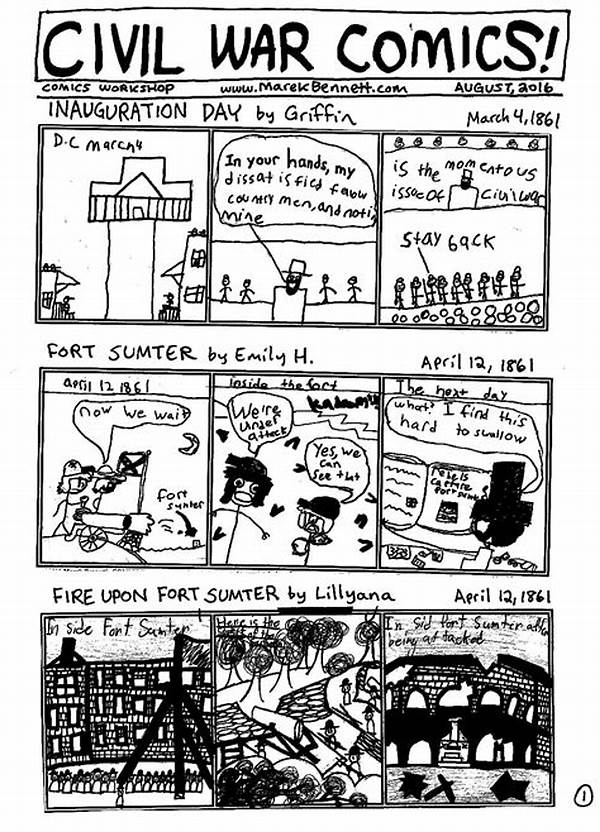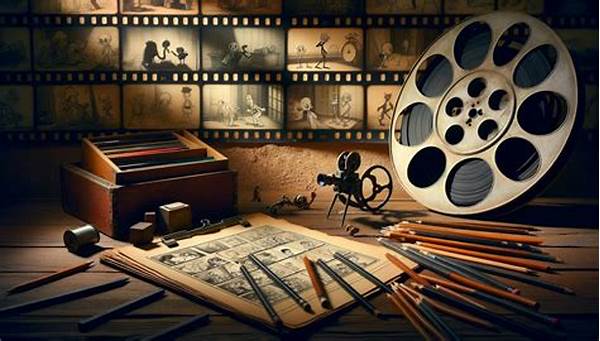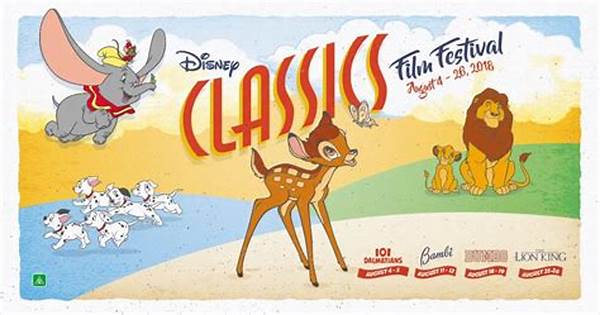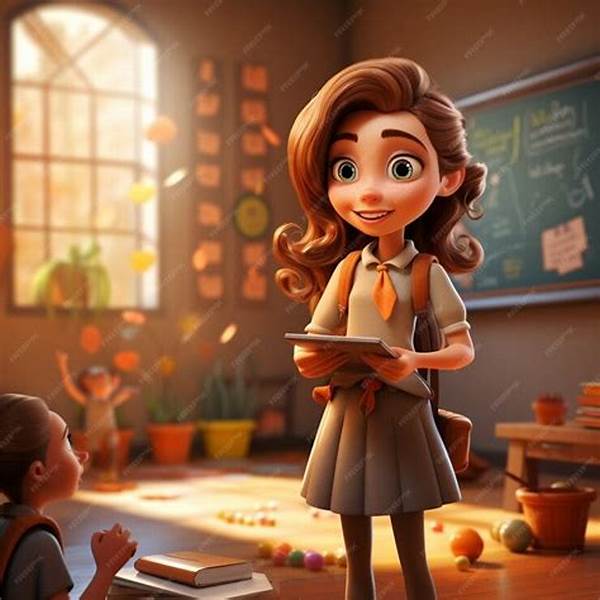When it comes to learning about history, who says you need to stick to dusty old textbooks or monotone lectures? Imagine a world where the riveting adventures of our past leap right out of the page, dressed in eye-popping colors and lively dialogue: welcome to the realm of comic adaptations of historical events. Seriously, comics aren’t just for superheroes and witty banter anymore. They’ve become a powerful medium, capturing the essence of historical events and making them accessible, engaging, and dare I say, entertaining. If you think history is boring, it’s time to reconsider and jump on the bandwagon of this emerging trend!
Read Now : Overlooked Cartoon Masterpieces
Why Comics? The Unmatched Appeal of Comic Adaptations
Comic adaptations of historical events are, without a doubt, the coolest things to hit history since sliced bread. Imagine flipping through a comic’s pages and watching history unfold with all the drama, emotion, and action intact. Unlike tedious textbooks, comics can express complex historical events in a simple, engaging, and relatable way. They break down barriers of boredom and bring history to life with their vivid graphics and dynamic storytelling. These comics don’t just tell stories; they show them. By engaging readers visually and emotionally, they ensure that historical tales are not only remembered but appreciated. So, if you’re tired of the snooze-fest that history can sometimes be, let comic adaptations be your guide to the past!
The Transformative Power of Comics in Sharing History
1. Visual Storytelling: Comics marry visuals with text, making historical events more approachable.
2. Enhanced Engagement: They captivate readers with thrilling artwork and emotive storytelling.
3. Simplified Complexities: Comics distill intricate historical details into digestible narratives.
4. Cultural Reach: They can portray diverse perspectives within historical contexts.
5. Evolving Medium: Comics continually adapt, offering fresh takes on well-trodden historical paths.
Engaging Young Minds: The Perfect Learning Tool
Comic adaptations of historical events are not just for history buffs or comic geeks. They’re for everyone—especially for young minds that are still developing their worldview. Schools are increasingly recognizing the potential of comics to engage students better than traditional methods. These adaptations provide a creative and innovative approach to education, giving students a unique lens through which they can explore significant historic occurrences. The magic of comics lies in their ability to simplify and animate history, transforming what would typically be a dull subject into an engrossing adventure. In a world where attention spans are dwindling, comics are a refreshing method to reignite curiosity and passion for learning about the past.
How Comic Adaptations Drive Historical Literacy
1. They harness the imaginative power to foster an interest in history.
2. Comic adaptations of historical events breed curiosity and inquiry among readers.
3. They offer diverse perspectives, filling gaps traditional education might overlook.
4. Comics provide context, linking past events to present scenarios effectively.
5. They inspire individuals to delve deeper into history with revived enthusiasm.
The Emotional Resonance in Historical Comics
Comic adaptations of historical events add an emotional layer that connects the reader to the past in unparalleled ways. The genius lies in their ability to make readers feel the triumphs and tragedies of history on a personal level, bridging the gap between reader and event. By depicting the human elements—expressions, dialogues, and emotions—they transform historical figures and events into relatable and flesh-out characters. This emotional resonance makes the lessons of history not just facts to remember, but stories to feel and experiences to reflect upon. In a world saturated with impersonal information, these comics remind us of the personal tales at the heart of history.
Inspiring Critical Thinking through Comics
1. Presenting contrasting viewpoints to spark debates.
Read Now : True Story Cartoon Retellings
2. Encouraging questioning of historical interpretations.
3. Stimulating discussions beyond superficial narratives.
4. Providing context for real-world implications of historical events.
5. Challenging preconceived notions through engaging storytelling.
6. Offering depth with each reading through layered narratives.
7. Promoting empathy by illustrating diverse perspectives.
8. Engaging readers in a dialogue with history.
9. Encouraging readers to explore further beyond the pages.
10. Fostering an interactive rather than passive learning experience.
The Shift towards Comics in Historical Education
Comic adaptations of historical events are not just an alternative; they’re quickly becoming a mainstay in educational circles. Their ability to engage readers of all ages and levels dramatically is unparalleled. Take a step back and consider: would you rather wade through pages upon pages of text-heavy material, or immerse yourself in a full-on visual narrative? The choice is pretty clear. Comics offer a fresh and exciting way to convey history, one that aligns with modern learning techniques, which emphasize visual and experiential learning. As more educators and historians recognize their value, these adaptations are set to become indispensable tools in making history accessible to all.
Reimagining History: A Modern Take
In a nutshell, comic adaptations of historical events are revolutionizing how we view and interact with history. They represent a convergence of art and literature, creating a unique storytelling medium that not only teaches but entertains. They bring the past to life in a future-forward way, making history as exciting and vibrant as it deserves to be. These adaptations are not merely a stylistic alternative; they are reshaping the landscape of historical education and appreciation. Embrace this fusion of past and present, and allow yourself to be swept away by the tales these comics have to offer—a journey into history you won’t soon forget!



